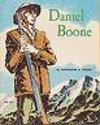
Katharine Elliott Wilkie (1904–1980)
Auteur de Helen Keller: From Tragedy to Triumph
A propos de l'auteur
Œuvres de Katharine Elliott Wilkie
Will Clark 2 exemplaires
Simon Kenton: Wilderness Boy 2 exemplaires
Maria Mitchell: Stargazer 1 exemplaire
Daniel Boone: Taming The Wids 1 exemplaire
William Penn 1 exemplaire
Kentucky Heritage 1 exemplaire
Childhood Of Famous Americans: Hellen Keller 1 exemplaire
William Fargo Young Mail Carrier 1 exemplaire
Simon Kenton Young Trail Blazar 1 exemplaire
Government By The People (Kentucky Edition) 1 exemplaire
Étiqueté
Partage des connaissances
- Nom canonique
- Wilkie, Katharine Elliott
- Date de naissance
- 1904
- Date de décès
- 1980
- Sexe
- female
- Nationalité
- USA
Membres
Critiques
Vous aimerez peut-être aussi
Auteurs associés
Statistiques
- Œuvres
- 34
- Membres
- 1,820
- Popularité
- #14,134
- Évaluation
- 3.9
- Critiques
- 4
- ISBN
- 45





Personal Reaction: When I found this story as a child, I found it to be so inspiring. I never knew of the obstacles people had to face in those types of circumstances, and it had me wanting to learn more about Helen.
Extensions:
1) I would teach the children about sign language and its importance to other people as well as some phrases they can sign to each other.
2) I would teach the children about being respectful for those with disabilities, and how they can be helpful to those in need.… (plus d'informations)